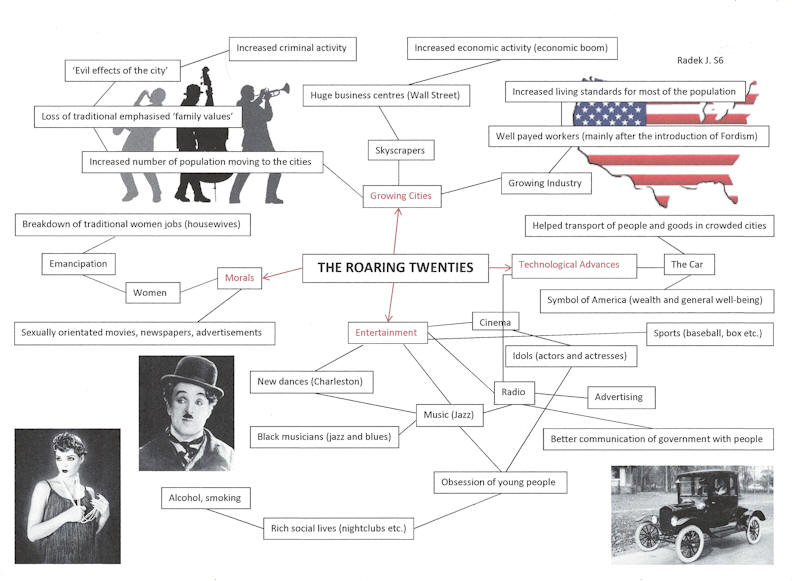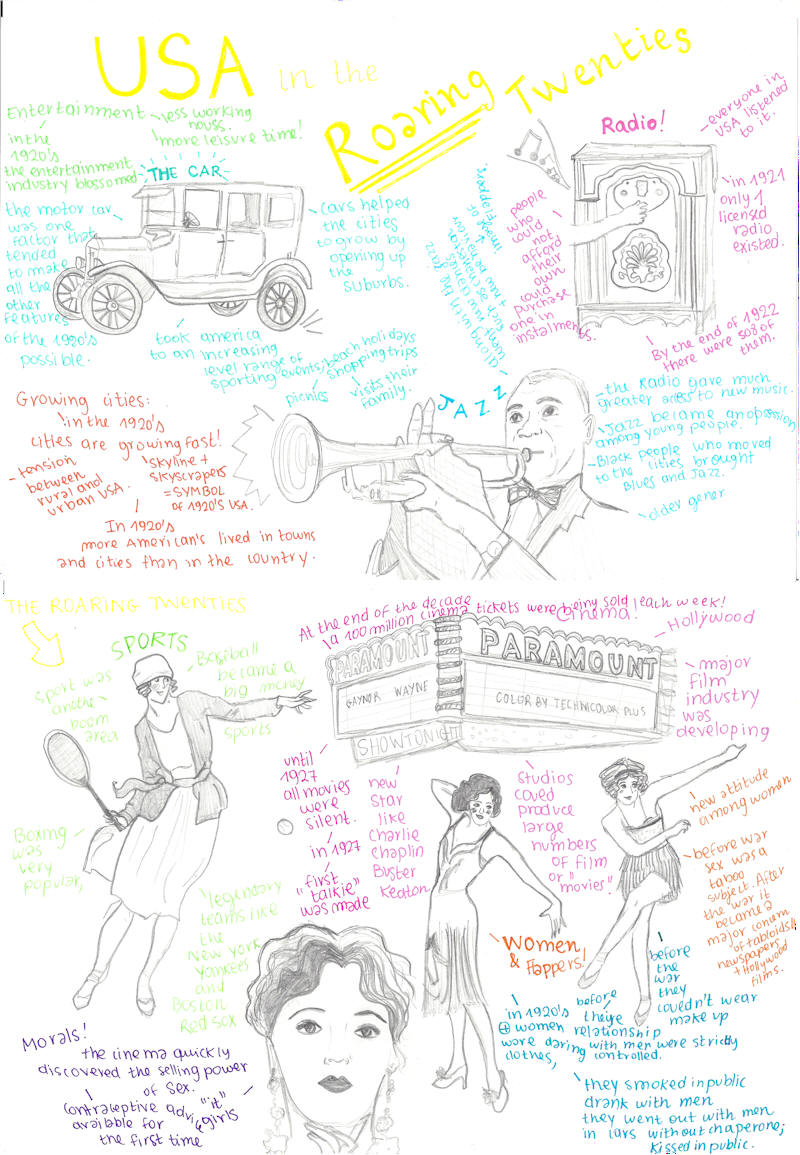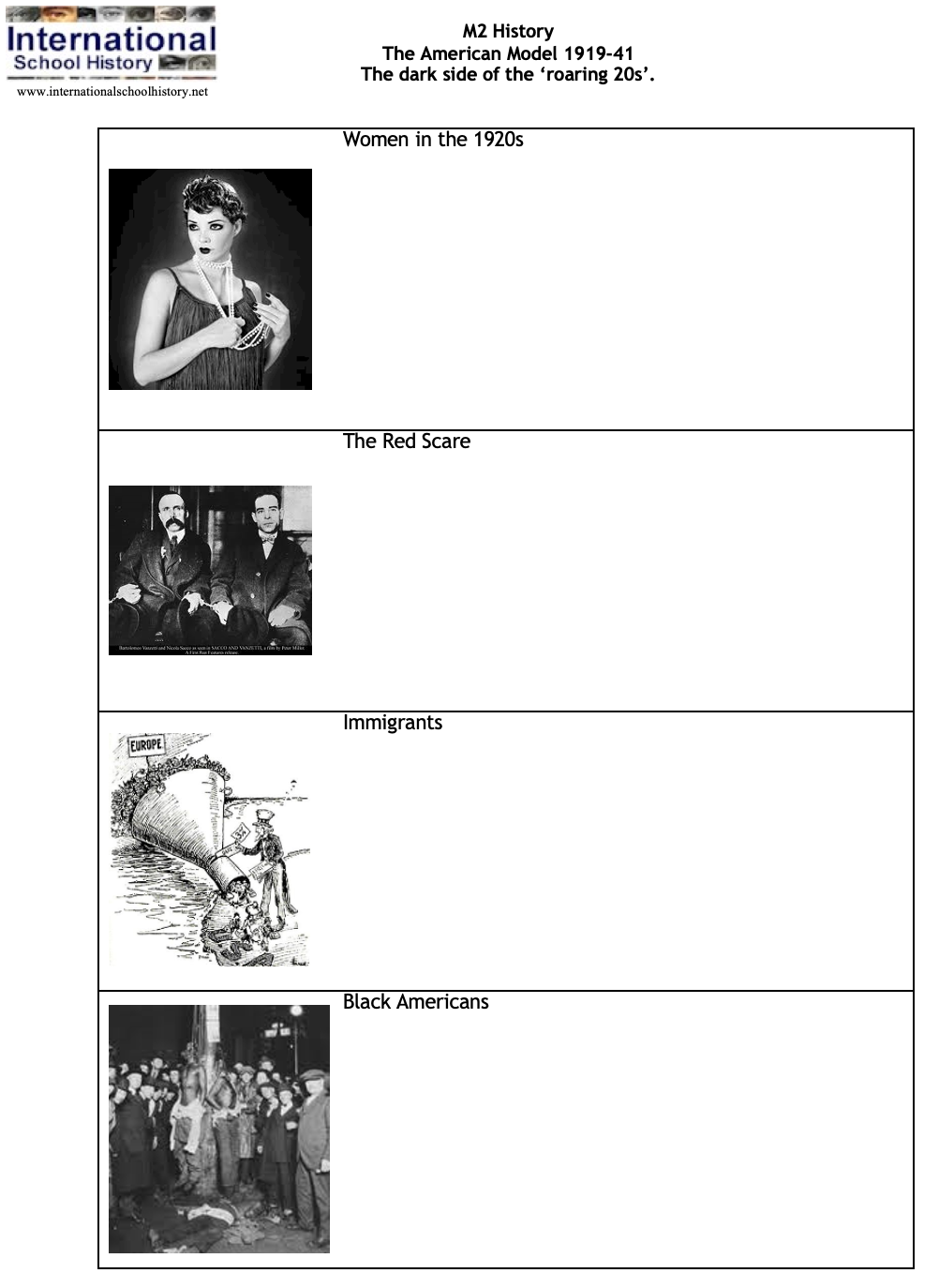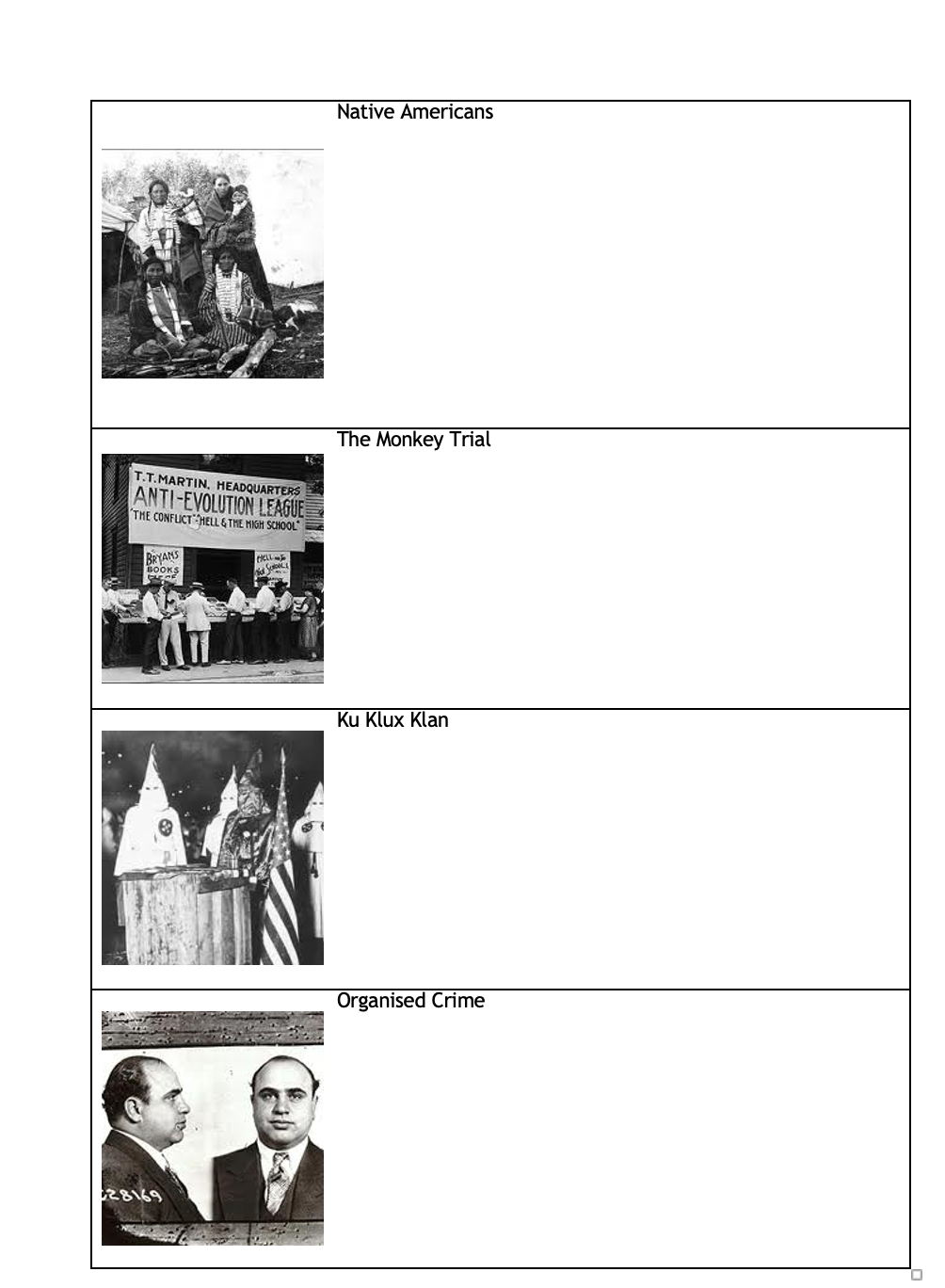Lesson 2 - The Roaring Twenties?
The 1920s, also known as the "Roaring Twenties," was a decade of significant cultural, social, and economic change in the United States. The term "Roaring Twenties" refers to the decade's association with a feeling of liberation, optimism, and a general sense of prosperity and progress. The end of World War I in 1918 brought about a sense of peace and optimism in the country. The economy boomed, and people had more disposable income than ever before. This led to a rise in consumer culture, and people began to spend money on new forms of entertainment, such as jazz music, movies, and dance. This decade also saw the rise of the "flapper" culture, in which young women rejected traditional social norms and embraced a more liberated lifestyle.
For this lesson I'm going to test your creativity.
|
Using the information on pages 194-5 (...and 184-90 on the economy and196-7 on women) create a one-side revision diagram/ poster of the main features of post-war USA that gave it the reputation as the Roaring Twenties. You can do it either by hand or using a computer as you can see in these two earlier examples.
|
BBC bitesize revision on popular entertainment
The two edited extracts from the People's Century series below are only meant for those with a particular interest in sport or film. The BBC schools film USA 1920s is what I might have seen in school and doesn't mean it's not good because its old. The Crash Course and Oversimplified videos offer more about two particular aspects of the 1920s.
The two edited extracts from the People's Century series below are only meant for those with a particular interest in sport or film. The BBC schools film USA 1920s is what I might have seen in school and doesn't mean it's not good because its old. The Crash Course and Oversimplified videos offer more about two particular aspects of the 1920s.
|
|
|
|
|
|
The dark side of the Roaring Twenties
Not everybody in society benefitted from the roaring 20s. We have already noted how and why many living in the countryside and dependent on farming struggled in this period. There were also other groups who benefitted little and and other events which cast a dark shadow over this apprarently golden period.
Textbook 192-3 provides the overview. 198-210 provides the detail.
For this activity, you're going to make a short film. But first of all you need to plan it. We have looked at the largely positive side of the 1920s boom. In this lesson we need to examine the 'dark side of the 1920s'. Worksheet
Textbook 192-3 provides the overview. 198-210 provides the detail.
For this activity, you're going to make a short film. But first of all you need to plan it. We have looked at the largely positive side of the 1920s boom. In this lesson we need to examine the 'dark side of the 1920s'. Worksheet
The film
|
This is an old activity I have been doing for at least 10 years, see right. You can either do this on your own (2mins) or in a pair (3-4 mins).
The aim is produce a one sided documentary that emphasises the negative aspects of 1920s USA. Requirements - Archive images, titles, music, narration and introductory exposition. Options - Archive video, actuality, dramatic reconstruction, etc. Advice A script for a film is not the same as an essay or a presentation. Remember that images can convey powerful meaning without words. Similarly, a narration is not the same thing as performing on stage to an audience. Archive images and music are not simply background to the script, think carefully about how and why you are using them. 'Sound is half the picture', so make sure everything that is said can be clearly heard. The exposition is a filmic art form not merely an introduction, so as with most film techniques consider reviewing my history student's guide to documentary film making. |
A history student's guide to documentary film making.
|
Previous student films
|
|
|
|
|
|
|
|
|
|
Other links
BBC Bitesize on the dark side of the 'Roaring Twenties'.
John D Clare is not just a revision site but always contains extra links to useful materials. This page also contains possibly his longest list of mnemonics.
BBC Bitesize on the dark side of the 'Roaring Twenties'.
John D Clare is not just a revision site but always contains extra links to useful materials. This page also contains possibly his longest list of mnemonics.
Extension
BBC schools produced a series of films of the the USA in the 20s and 30s in support of this popular GCSE topic. They use actors to reconstuct the testimony of various eyewitnesses to the period.
BBC schools produced a series of films of the the USA in the 20s and 30s in support of this popular GCSE topic. They use actors to reconstuct the testimony of various eyewitnesses to the period.
|
|
|
|






